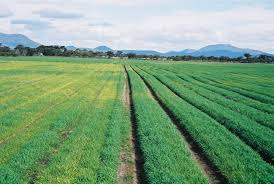As the globe grapples with climate change, environmental degradation, and a growing global population, sustainable farming has emerged as a critical option to assure food security and conserve our planet's resources. Sustainable agricultural practises place a premium on ecosystem health, economic viability, and social equality. Despite advances, there is still a pressing need for better knowledge of the relevance and advantages of sustainable farming. This article discusses why raising awareness is critical to the success of sustainable farming as per Benedict t palen Jr.
Environmental Impact
Traditional agricultural methods
frequently make extensive use of synthetic fertilisers, pesticides, and
unsustainable irrigation systems. These practises cause land degradation, water
pollution, and biodiversity loss. Crop rotation, agroforestry, and integrated
pest control are examples of sustainable agricultural approaches. Raising
awareness about these practises is critical to assisting farmers in
understanding how their decisions directly influence the environment and how
sustainable solutions may reduce these negative consequences.
Resilience to Climate Change
Climate change offers a huge danger to agriculture,
impacting agricultural production through rising temperatures, irregular
rainfall, and extreme weather events. Conservation tillage and cover cropping,
for example, improve soil structure and water retention, making crops more
tolerant to these issues. Farmers may better prepare for and respond to climate
change by raising knowledge about these strategies.
Economic Viability
Critics often argue that sustainable
farming is expensive and yields lower profits. This viewpoint, however, ignores
the long-term economic gains. Sustainable practises can minimise input costs
over time by reducing the requirement for expensive inputs such as synthetic
fertilisers. Additionally, by maintaining soil health and preventing erosion,
sustainable farming ensures productive land for future generations. Raising
awareness about the potential for improved economic outcomes is crucial to
dispel misconceptions and motivate farmers to transition to sustainable
practices.
Health Considerations
Conventional farming practices can lead to
the presence of harmful chemicals in food products, which can have adverse
effects on consumer health. Sustainable farming methods prioritize natural
approaches and reduce the use of synthetic chemicals, resulting in healthier
and safer produce. Raising awareness about the potential health benefits of
consuming sustainably grown food can drive consumer demand and incentivize more
farmers to adopt these methods.
Rural Communities and Social Equity
Sustainable farming practices often
emphasize community involvement, knowledge sharing, and fair labor practices.
By embracing these principles, sustainable farming can revitalize rural
communities and provide equitable opportunities for farmers. Raising consumer,
policymaker, and stakeholder knowledge of the beneficial social benefits of
sustainable farming can lead to the development of supporting policies and
initiatives.
Conclusion




